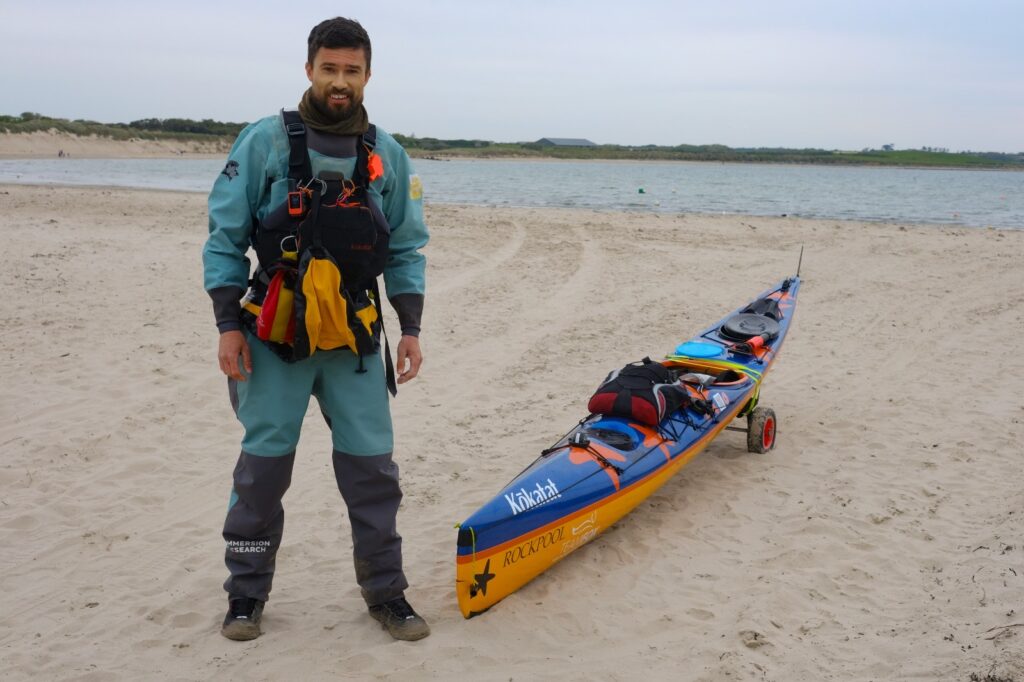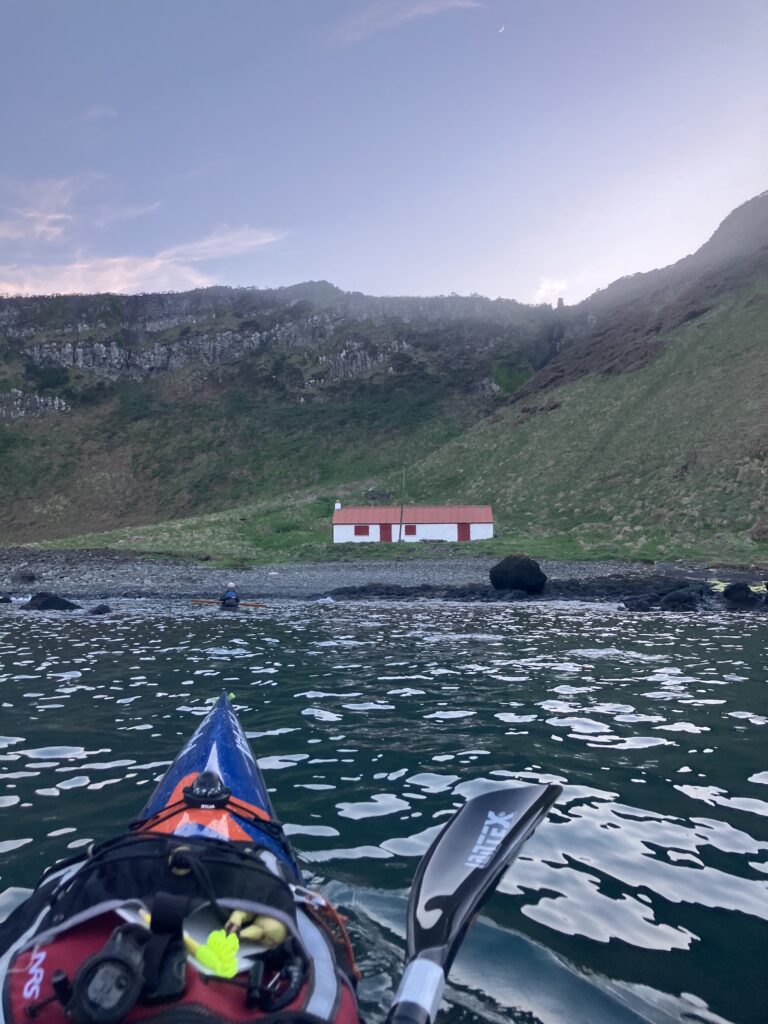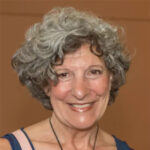
If Charles “Charlie” Daly isn’t writing or doing an interview for a freelance or ghostwriting project, you’ll likely find him in a kayak on the sea.
Daly, who lives on the southwest coast of Ireland, recently completed a kayak expedition to circumnavigate the Emerald Isle. He completed the endeavor over two trips taken in summer 2023 and spring 2025, “through injuries, surgery, weather delays, and family emergencies.” The voyage took a total of 60 days: 44 paddling and 16 weather and rest days. And yes, he’s writing a book about it.
Another book project, “I Will Follow You Anywhere: The True Story of a 9/11 Responder and a Comedian who Took on Congress,” written in collaboration with John Feal, comes out in September 2026, pegged to the 25th anniversary of World Trade Center terrorist attack. It tells the story of Feal, whose experiences as part of the Ground Zero clean up crew led him to spend years lobbying for a 9/11 health care bill and “become a mentor to a new generation of activists.”
I caught up with Daly recently to find out more about how he got into writing, how he juggles big adventures with freelance and ghostwriting work, why he joined ASJA, and why he advises freelancers to think like pirates. The interview has been edited for clarity.
How did you get started as a writer?
I majored in English, with the absurd and audacious plan to “be a writer.” Trying to find a day job that involved writing led me to the more practical and well-paid forms, like writing B2B content and eventually ghostwriting books.
When did you go freelance?
I’ve always been freelance, and I’ve only ever been in an office to interview subjects for books. I can’t sit still long enough to work in that environment. Working from wherever and setting my own schedule has always been a non-negotiable for me, and freelancing gives me that freedom.
You’ve done all kinds of writing. What’s your current work mix?
I’m mainly a ghostwriter these days, but I keep a couple of long-form B2B content clients on retainer for a steady income between book projects. I find this allows me to be a little more picky with book projects and choose those projects based on interest and connection with the author, not just needing the money.
My side project is writing on Substack about my adventures and “nautical nonsense,” to quote SpongeBob SquarePants.
How did the memoir you’re collaborating on with John Feal come about?
A dear friend of mine, Bridget Gormley, lost her father who had been an FDNY firefighter to cancer from dust exposure at Ground Zero. She worked with John on the 9/11 health care bill and made a heartfelt documentary about it. She put us in touch.
John had met with a few writers, including some much bigger names than me, some of whom offered to do the book on spec. But we just clicked in a way he hadn’t with others, and we worked on a proposal and eventually the manuscript. Jon Stewart is writing the foreword and has been hugely helpful to this project. It’s been a thrill and an honor to work with John Feal and his team of 9/11 responders and survivors. He had us both laughing and crying in every interview. And that’s his goal for this book: “I want people to laugh, cry, and get mad.”
What’s your best advice for getting an author to open up, especially about tough stuff?
Listen! But you know that already, if you’re a ghostwriter or co-author.
My slightly contrarian advice is to know when to push a little and encourage the author I’m working with to “go there.” Being “trauma informed” doesn’t mean tiptoeing around difficult conversations. I can speak from experience of having gone through some stuff that other people’s squeamish attempts at empathy can actually be super isolating and harmful. Be sensitive, but you have a job to do, a job the author has asked you to do. You’re not helping them or yourself or the book by being over-sensitive. This, of course, assumes that they have already decided they’re ready to open up and you’ve assessed the viability of the project. A book isn’t therapy, even if the process of telling one’s story can be therapeutic.
One weird thing I’ve found to be really important in a tough interview is your facial expression. If you have a neutral but kind look on your face and you show that you’re listening, people will naturally open up and fill those silences. But if they can see you’re judging or put off or offended, even in a microexpression, their walls will go up.
That said, it’s okay to cry. I often do.
Your own experience–either first-hand or from family and friends–can be an asset, and it might help to share a little bit of it.
The other thing I would say is just to be prepared for surprises in how someone reacts to working through a painful subject in writing and interviews. You and your writing partner will have good days and bad, and you’ll find your rhythm. To quote Jerry Springer: Be kind to yourselves and each other.
How did your paddle around Ireland come about?

I live on a beach in the South West of Ireland. So, this was an adventure literally in my backyard. I’ve known about this trip since I was 10, at which point I was already a sea kayaker. I started seriously training for an attempt and learning from paddlers who’d done it when I moved back to Ireland a few years ago.
Only about 100 people have kayaked around Ireland. I’m one of 30 or so who’ve done it solo. The coast is one of the roughest and most storm-prone patches of the North Atlantic. Normal conditions for us would be extreme anywhere else. Living here, you get used to being out in big seas and horrible weather.
This trip was a fundraiser for The Michael J. Fox Foundation for Parkinson’s Research.
I’m working on a book about it. Stay tuned!
How do you balance work and adventure and what’s your advice for other freelancers who want to do the same?
I don’t know that there is much balance in my life. The ocean comes first. Expedition sea kayaking is one of the safest adventure sports, but the North Atlantic routinely kills people who are a lot stronger and more experienced than me. So, I train like my life depends on it…because it does (H/T Roz Savage and Rannulph Feinnes). To put that in terms of hours, training is basically a part-time job. Expeditions, even short ones, involve blocking off time for weather windows.
Maintaining that commitment to training in the off-season and expeditioning in the summer all while supporting a family with freelance projects means saying “no” to pretty much everything else. I can’t do this sport at the level I want to do it and still go to every wedding, brunch, and night out.
So, that would be my advice. Be ruthless about saying “no.” And don’t feel the need to have balance in your life if what you want to do involves serious dedication.
When did you join ASJA and why?
I joined earlier this year at the suggestion of Association of Ghostwriters founder (and ASJA member), Marcia Layton Turner. ASJA seemed to be the perfect place for a ghostwriter who works on journalistic type books.
What’s your favorite ASJA benefit?
The coffee chats are the highlight of my work week. It’s a great way to stay connected from the other side of the Atlantic, and it’s nice to have colleagues for a change.
What are you reading, listening to, or watching?
I’m reading “The Sea Around Us,” by Rachel Carson. It’s a masterpiece, and incredibly moving after 40 days of spending every waking hour on the sea. I’m also reading “The White Darkness,” by David Grann, a New Yorker article that became a short book about the life and death of modern-day Antarctic explorer, Henry Worsley. I’m listening to the “No Dogs in Space” series on The Velvet Underground & Nico. And I’m watching: “Married at First Sight Australia.” Nothing beats trash TV, and the Australian version is on a whole other level.
What else should ASJA members know about your approach to freelancing?
Be a pirate! I’m not kidding. This life is a lot easier when you live below your means and keep things simple. I know that’s going to look different for everyone, and I can only speak to the early-career side of things with few responsibilities, but my advice is to stay lean and scrappy. That will give you freedom in the art and craft of it all.
The real art in ghostwriting is in collaboration and getting to know the authors I work with. This is where I can say that ghostwriting and co-authorship is my calling and not just a way to pay the bills. If I could just wake up tomorrow as a non-fiction author of my own books, I would still want to ghostwrite on the side, because I would miss the collaborative side of things.
Browse Articles
Topic
Craft & Writing Skills, Book Publishing, Running Your Business

